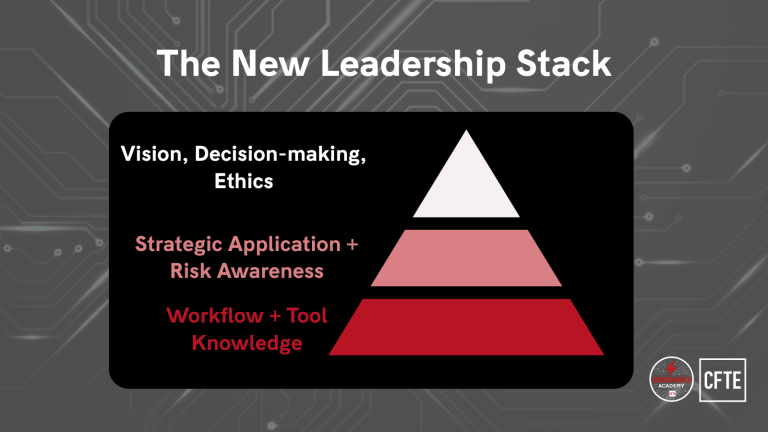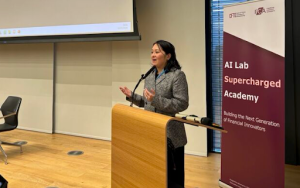There was a time when AI was seen as the domain of data scientists and innovation teams.
That time is over.
In 2025, AI is embedded into strategy, compliance, operations, and client delivery — and professionals in leadership positions are expected to understand it.
AI isn’t just a technical skill anymore. It’s a leadership one.
Leaders Are Now Expected to Understand AI
According to LinkedIn’s AI at Work 2025 report, 81% of L&D professionals believe leaders must upskill in AI to remain effective.
PwC’s Global AI Jobs Barometer echoes this:
The fastest-growing demand is for managers, directors, and senior professionals who can confidently integrate AI into their teams and decisions.
This shift is especially relevant in financial services, where:
- Compliance is tightening under regulations like the EU AI Act
- Operational teams are adopting AI workflows at scale
- Clients expect trusted guidance — not vague promises
Being AI-blind is no longer acceptable in leadership.
What Does AI Fluency Mean for Leaders?
AI fluency doesn’t mean becoming technical. It means:
- Understanding what AI can and can’t do
- Using AI to improve workflows, productivity, and insight
- Making responsible, compliant decisions about tool use
- Guiding teams through change with confidence
AI fluency is the new digital fluency.
If you can’t speak the language, you can’t lead the conversation.
The Executive AI Certificate: Designed for Leadership
The Executive AI Certificate was built specifically to help senior professionals develop true fluency — without becoming technical.
In four weeks, leaders:
- Benchmark their AI capability with the AIQ
- Learn applied use cases in finance (risk, strategy, compliance, operations)
- Understand frameworks for ethical and responsible use
- Build a portfolio of outputs they can use with teams or clients
- Earn a certification recognised by global institutions
This is structured learning for people who need to act — not just explore.




